Educating Rita (1983)
“I came to tell you you’re a good teacher.”
|
Synopsis: |
|
Genres, Themes, Actors, and Directors:
Response to Peary’s Review: However, I’m not sure I agree with the remainder of Peary’s assessment. He notes that Rita’s “enthusiasm excites [Caine] and he becomes a good professor” (this is only marginally indicated; he still has enormous drinking problems), and that “Caine, who has fallen in love with [Rita], misses the honesty she conveyed before she became (with his help) too sophisticated.” (Again, I’m not sure either of these statements is quite true.) Peary adds, “While the picture was made a decade too late to be taken seriously as an important woman’s-movement film, it does make an interesting point that a man resents a woman who is as educated as or more educated than himself — even if he is the one who encouraged her education” (a “favorite theme of Woody Allen”); however, I don’t actually see evidence of Caine’s Professor Frank Bryant resenting Rita — rather, she puzzles and intrigues him. In Alterate Oscars, Peary names Caine Best Actor of the Year, asserting that while “Educating Rita was a showcase for Julie Walters, and she gives a dynamic performance, full of grit and wit,” “Caine matches her every step of the way.” He notes, “As Rita changes in dramatic ways, we notice subtle changes in Frank. As his drinking drops off, he again looks out his window with clear eyes at the pretty world outside, starts to care again about teaching, is excited again about literature, smiles, has energy, looks trimmer… and likes himself again.” But “when Rita leaves his sphere of influence, getting stimulation and experiences elsewhere, he is crushed, reacting with spite and martyrdom,” and “orders her to go away.” (No — actually, he strongly recommends that she attend summer school, reminding her that she has plenty to learn from other tutors besides him.) At that point, “obsolete again, he returns to booze”: … and “his attitude becomes obnoxious, but Caine makes it evident that Frank is feeling emotions that he hasn’t experienced in years. So while he tries to destroy himself — if the drinking doesn’t wreck him physically, it will at very least cause him to lose his position — he also looks deeply inside himself and unexpectedly finds good qualities, the result of his relationship with Rita.” Peary concludes that “as Frank Bryant, tutor of someone who had a background much like Caine’s own, he got the opportunity to be intelligent, tender, funny, bitter, self-pitying, and insecure.” I’m a fan of Caine’s work here, but can’t relate to much of Peary’s assessment, given that Frank’s trajectory is ultimately peripheral (rightfully so) to that of Rita. Caine’s performance hints at the depths indicated in Peary’s analysis — but because they’re not the primary focus, we don’t really know for sure what’s going on. We see the folks around Frank (students, colleagues, friends) showing remarkable sympathy for his disease, giving him yet another chance, time and again — but we’re not actually sure he deserves these chances. Instead, it’s Rita’s bold liberation from the shackles of her class expectations that keeps us engaged; it’s easy to sympathize with the predicament she finds herself in, given that she genuinely cares for her husband and family but simply can’t relate to their desires or lifestyle anymore. Peary ends his Alternate Oscars review of Caine’s performance by writing:
Peary’s sentiments are authentic and revealing of his own insecurities — and while I can’t relate to them, it’s clear that this film offers different take-aways for a variety of viewers. As Peary writes in GFTFF, “This was an unexpected hit that most everyone liked, despite the conventional Pygmalion-influenced story,” and it remains worth a one-time look. Notable Performances, Qualities, and Moments: Must See? Categories
Links: |
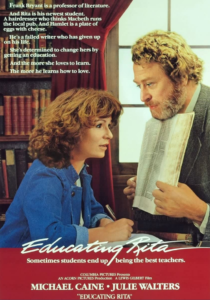
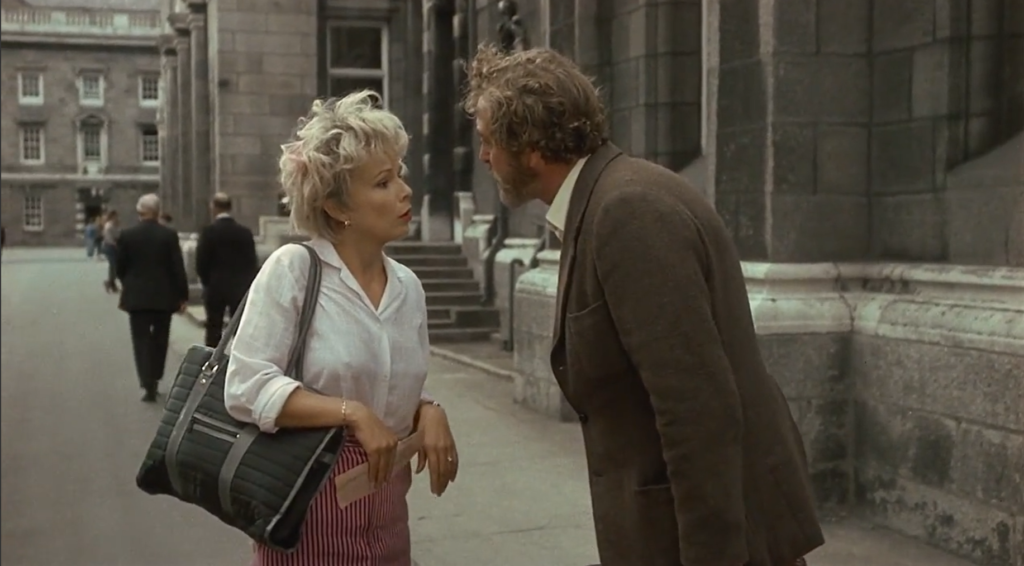
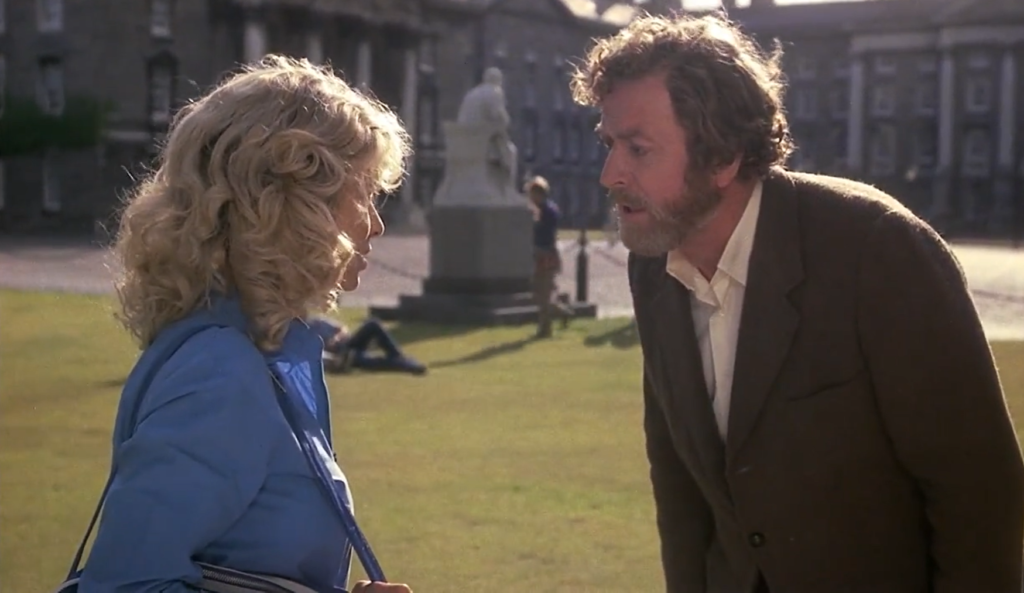
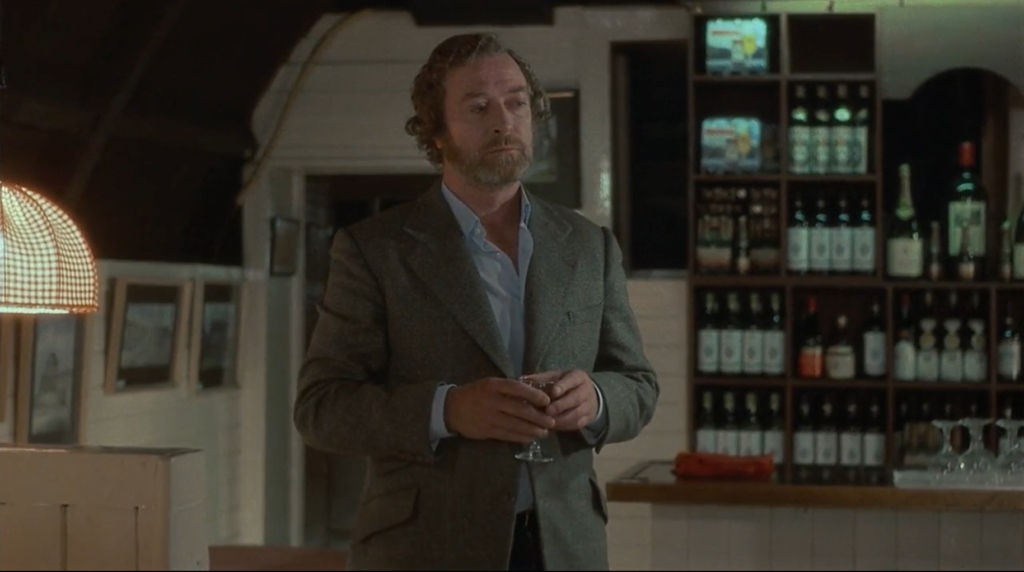
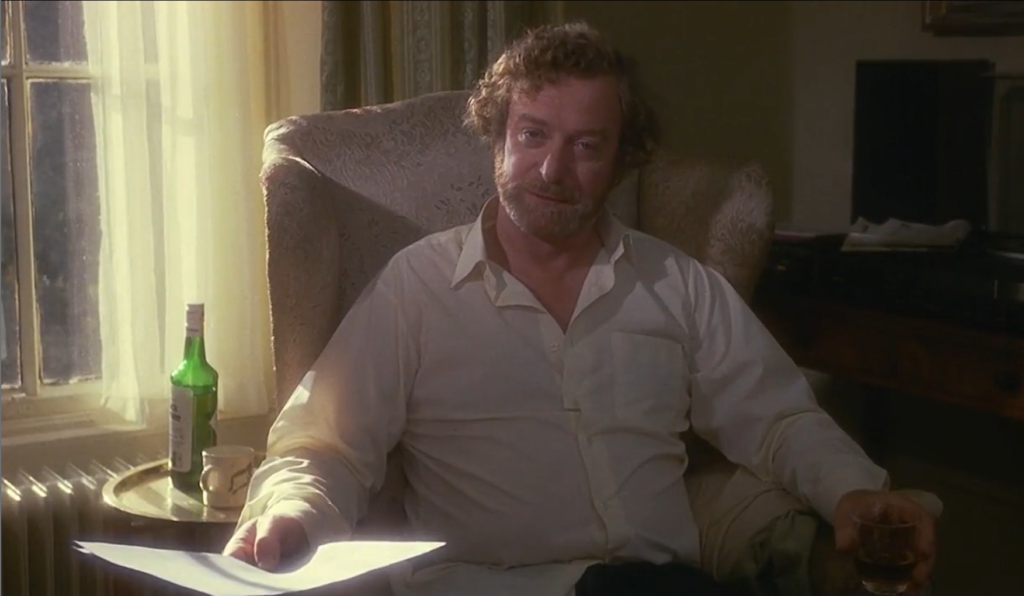
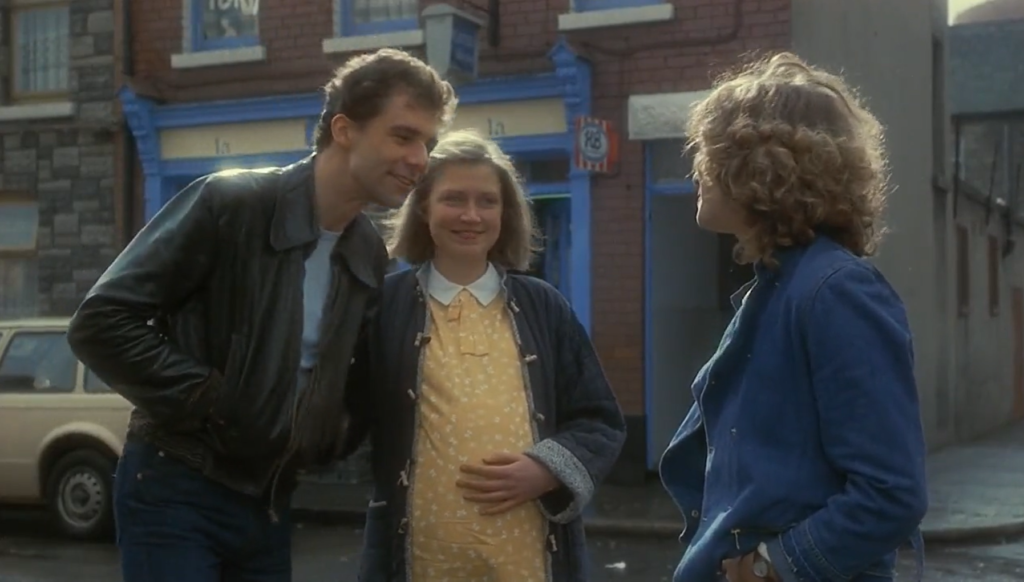
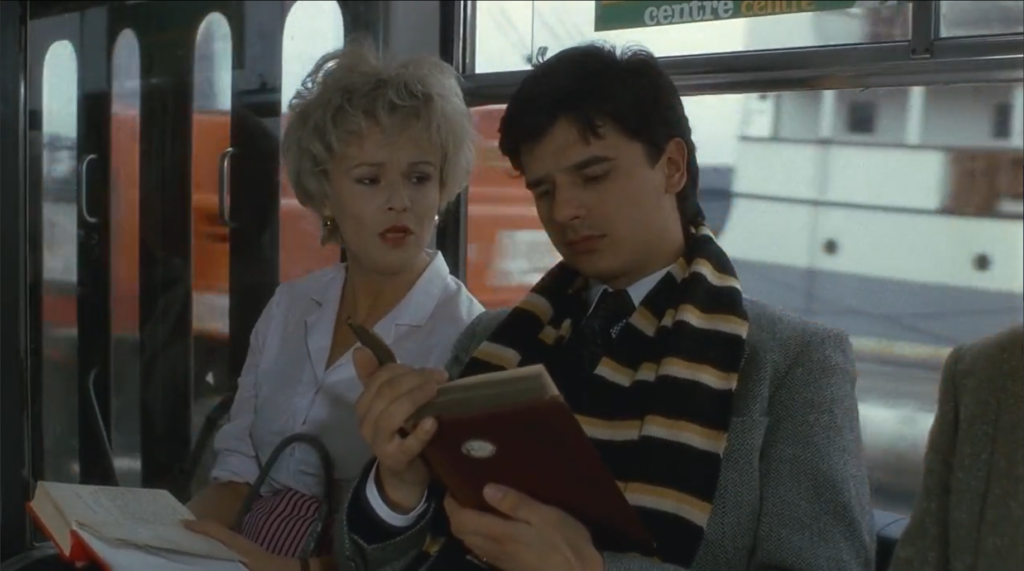
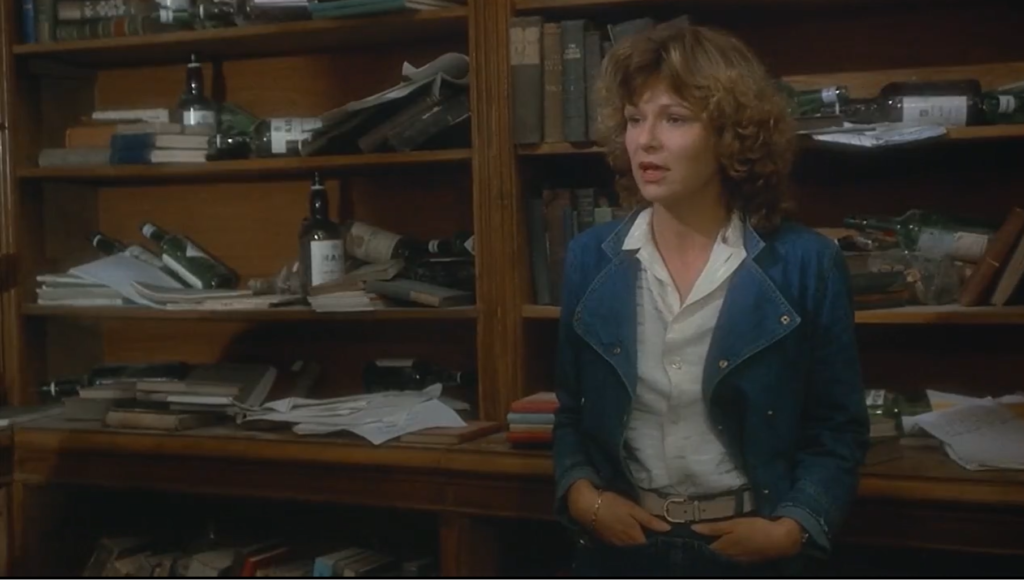
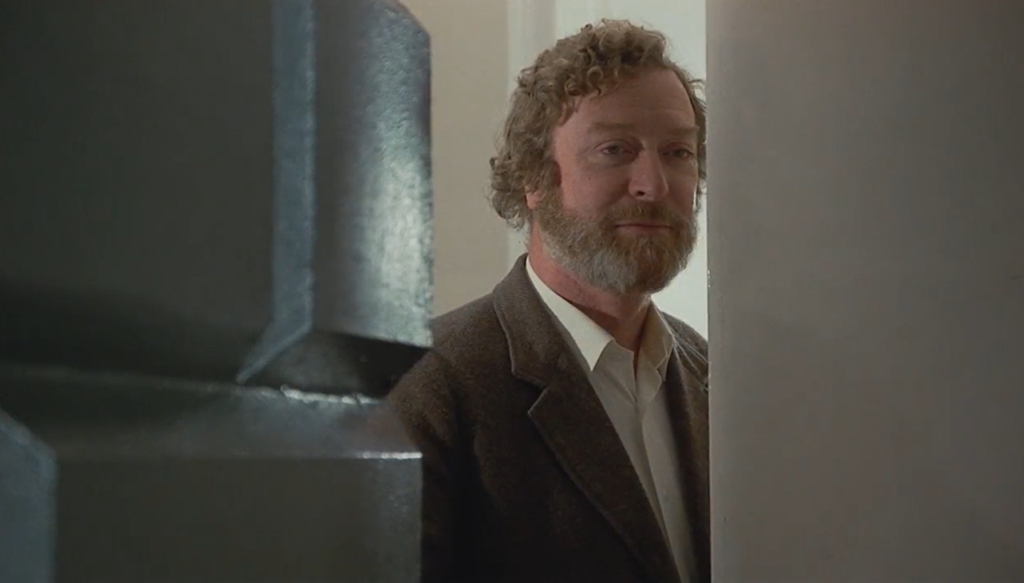
2 thoughts on “Educating Rita (1983)”
Agreed; a once-must for the lead performances.
I must say this is among your best assessments of a film – showing a sharp understanding of the characters and situation as well as what seems a personal connection with the material.
Caine turns in his usual sturdy performance (he has rarely been bad in film; the exceptions being those turkeys he admits to making only for the money).
At the time of Peary’s book, Walters was near the beginning of a film career that apparently still remains strong. Over the years, she has been just as consistently good as Caine (she has called him her best mentor).
I’ve been trying to think about whether I relate to this scenario or not… I do work in academia, which has been dominated by white men who are (yes) often threatened by others (women, people of color) seeking the positions they once held without question, and who like to hold onto the illusion that they somehow possess something (knowledge, status) they can pass on — or not — to others, depending on their whim.
It’s deeply distressing seeing formal education portrayed here as something Rita has to basically beg for — especially since (for instance), who says understanding “Howard’s End” (or any other E.M. Forster novel!) is somehow the epitome of academic success?!
The main thing I was struck by while reading Peary’s review was how much I fundamentally disagreed with his read on Caine’s character (Frank) — and thus understood he was merely projecting his own insecurities onto him. What Frank seems to be grappling with here is existential angst over his value in the world, which can no longer simply be assumed — and Rita certainly disrupts that, even while she clearly gains from his mentorship.